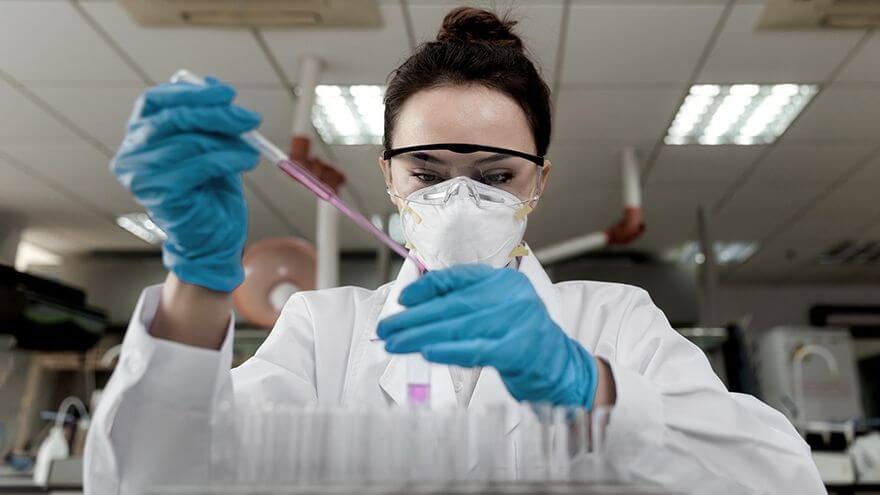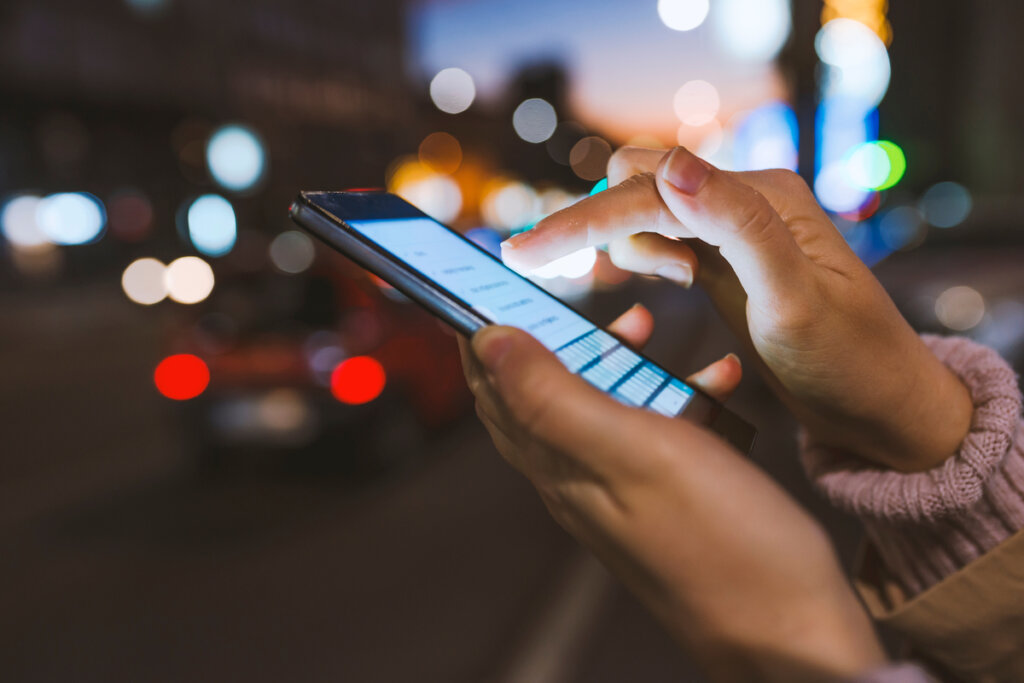Is the Media Today Making Us Mistrust Science?


Written and verified by the psychologist Valeria Sabater
We’re currently witnessing how science is losing its position of authority as a guarantor of truth. In fact, as a result of the global crisis caused by the pandemic, the social image of doctors, researchers, and disseminators has been constantly questioned. For this reason, we ask the question, is the media making us mistrust science?
It certainly seems so. Indeed, we’ve seen how many journalists and politicians continually debate subjects that aren’t even in their remit. This includes the area of science. Furthermore, scientists themselves are under enormous pressure. Because if there’s one thing we tend to ask of science, it’s certainty and clear conclusions.
However, and this is the most important aspect, we tend to forget how scientific research works in contexts of health crises like the current one. As a matter of fact, it’s impossible for the science field to offer conclusions and categorical data with respect to the current pandemic. That’s because it’s an unknown reality that’s marked by uncertainty. On the other hand, science, by its very nature involves observation, comparison, experimentation, and self-correction.
For this reason, when new data sometimes appears, and scientists are forced to reformulate conclusions, the media is extremely quick to criticize. This heightens social mistrust. Without a doubt, this proves a great danger for society itself as a whole.
“Science, my lad, is made up of mistakes, but they are mistakes which it is useful to make, because they lead, little by little, to the truth.”
-Jules Verne-

Mistrust in science
The economist Adam Smith pointed out that the antidote to superstition and human ignorance is science. Therefore, what cost will the current mistrust of science have on all of us if we continually question it? As a matter of fact, the impact could be immense. However, there’s one particularly striking fact.
This is the fact that science is both saleable and attractive. Many of us follow the latest scientific news in the popular press. However, something that happens with this type of communication is that it offers a popular vision of science that’s based only on objective certainties and an almost absolute predictive power. This vision is causing a lot of damage.
This is because there are particular areas, like within the current situation, where it’s impossible for science to offer conclusive data. Nevertheless, in crisis scenarios, people want certainties. However, science takes time and nothing works in the way we’ve been told it does by the world of cinema and popular television programs.
Evidence of this exists in previous crises. For example, attitudes toward bovine spongiform encephalopathy (mad cow disease) and the disaster in Fukushima, already demonstrated a certain mistrust in science. That’s because it wasn’t able to offer complete answers. Let’s take a look at why this happens.
The failure of the media to communicate scientific data
The University of Pennsylvania, the University of Buffalo, and the State University of New York (USA) conducted research that indicated that the media has a great impact on the mistrust of science by the general population. This cause-effect relationship stems from various dynamics:
- Much of the media use sensationalism as clickbait. For example, they publish specific and sensationalist aspects without including the explanations of the scientists themselves.
- It’s also common that they tend to publish and comment on scientific preprints. Bear in mind, a preprint is an original manuscript by an author that hasn’t yet been peer-reviewed or published. You must remember that science is an institution in which experts must review, analyze, compare and criticize the work of others through peer reviews. Only in this way, do they reach new conclusions.
- When crisis situations arise, the media crave new data and news virtually on a minute-by-minute basis. Therefore, scientists are obliged to continue providing information under considerable competitive pressure in their field. For this reason, mistrust in science is constructed on a daily basis. Indeed, it happens when society doesn’t receive quick enough answers to its questions and certainties to its concerns.

Unreliable sources are available to everyone
Carlos Elías is Professor of Journalism at the Carlos III University of Madrid. In one of his latest essays: Science on the Ropes, Decline of Scientific Culture in the Era of Fake News, he analyzes some extremely interesting aspects about the origin of the present mistrust in science.
Elías mentions factors such as the irrationality of the media as we mentioned earlier, the impact of social networks, and the fact of living in the era of fake news. He states that these factors contribute to a social atmosphere of great deterioration for progress and science. This can’t be denied. We’re living in a world where many believe that the origin of the pandemic lies with the implementation of the 5G networks. Furthermore, that there are small chips in the vaccines that control your will.
In this digital universe we live in, information travels too fast. However, science moves at its own speed. Naturally, society has the right to criticize. Nevertheless, it should always ensure that it seeks information from reliable sources. In this regard, the media should help.
Science will do very badly in the face of society if we don’t provide truthful, calm, contextualized, and well-explained information. The media have a great responsibility in this regard.
All cited sources were thoroughly reviewed by our team to ensure their quality, reliability, currency, and validity. The bibliography of this article was considered reliable and of academic or scientific accuracy.
- Elias, Carlos. (2019). Science on the Ropes: Decline of Scientific Culture in the Era of Fake News. 10.1007/978-3-030-12978-1
- Ophir Y, Jamieson KH. The effects of media narratives about failures and discoveries in science on beliefs about and support for science. Public Underst Sci. Published online May 17, 2021. doi:10.1177/09636625211012630
This text is provided for informational purposes only and does not replace consultation with a professional. If in doubt, consult your specialist.








